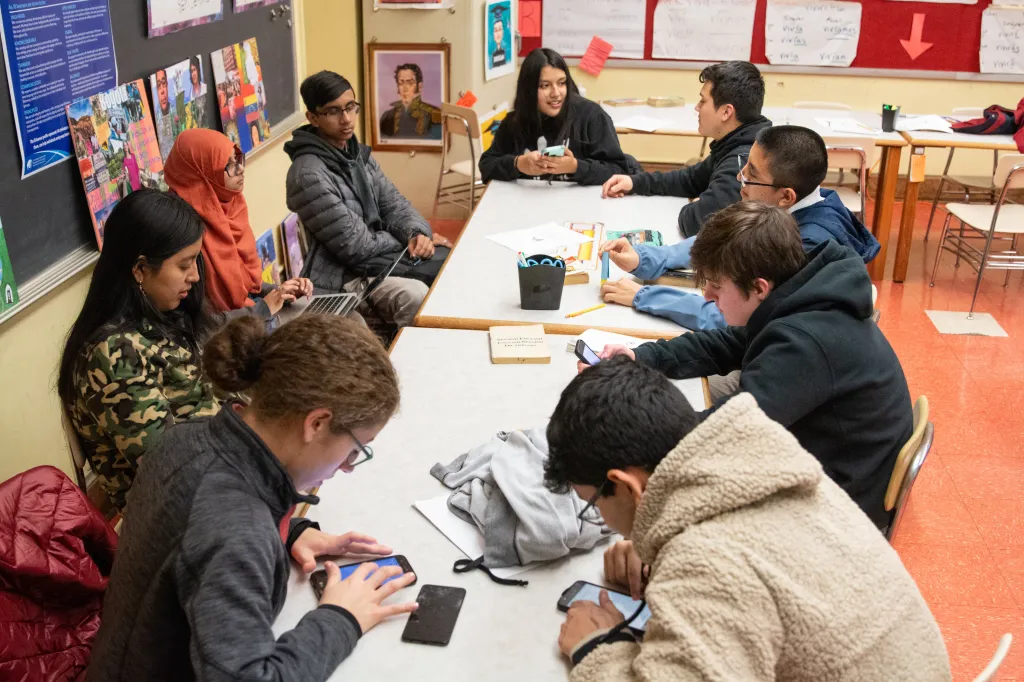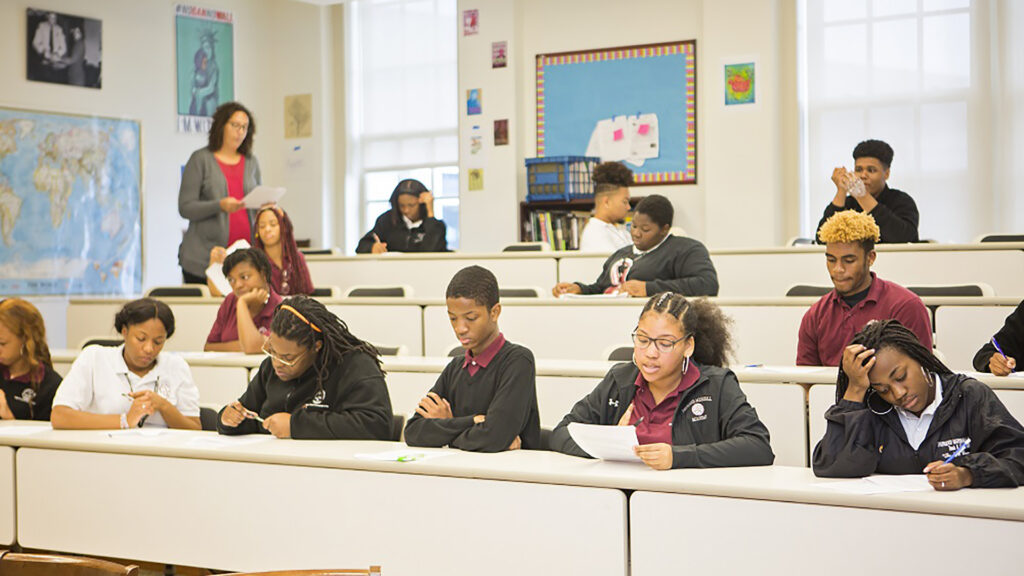Education is often hailed as the cornerstone of societal progress. Its transformative power extends beyond individual growth to address systemic challenges and pave the way for a more equitable and prosperous society. In this article, we delve into the multifaceted role of education in tackling societal problems, exploring its implications across different domains.
Understanding Education’s Role in Social Transformation
Education serves as the bedrock of social transformation, offering individuals the knowledge, skills, and perspectives needed to navigate and contribute meaningfully to society. By equipping individuals with critical thinking abilities and fostering empathy, education nurtures active citizenship and promotes social cohesion.
Empowering Communities Through Education
Education empowers communities by providing access to opportunities and resources that enable upward mobility. By investing in education, societies can break the cycle of poverty, reduce inequality, and create pathways for socio-economic advancement. Additionally, education fosters entrepreneurship and innovation, driving economic growth and prosperity.
Education as a Catalyst for Equality and Inclusion
Inclusive education systems play a pivotal role in promoting equality and diversity within society. By accommodating diverse learning needs and embracing inclusive practices. Education ensures that every individual, regardless of background or ability, has the opportunity to thrive. Moreover, education acts as a bulwark against discrimination and prejudice, fostering a culture of acceptance and respect.
Addressing Global Challenges Through Education
Education is instrumental in addressing pressing global challenges, such as climate change, poverty, and healthcare disparities. By raising awareness, promoting sustainable practices, and fostering global citizenship, education equips future generations to tackle complex issues and drive positive change on a global scale.
Transforming Education for the 21st Century
In the digital age, education must evolve to meet the demands of a rapidly changing world. From leveraging technology to enhance learning outcomes to promoting lifelong learning and reskilling initiatives, education must adapt to the needs of the 21st-century workforce. By embracing innovation and embracing a culture of continuous improvement, education can remain relevant and impactful in addressing contemporary challenges.
Cultivating Critical Thinking and Problem-Solving Skills
Critical thinking and problem-solving skills are indispensable in navigating the complexities of modern society. Education plays a crucial role in cultivating these skills and empowering individuals to analyze information critically. Make informed decisions, and propose innovative solutions to emerging challenges. By prioritizing the development of critical thinking skills. Education equips individuals with the tools they need to navigate an increasingly complex world.
Promoting Civic Engagement and Social Responsibility
Education fosters civic engagement and social responsibility by instilling values of democracy, justice, and human rights. Through civics education and community service initiatives, schools empower students to become active participants in civic life and agents of positive change within their communities. By promoting a sense of collective responsibility and encouraging civic participation, education cultivates a more engaged and inclusive society.
Leveraging Education for Conflict Resolution and Peacebuilding
Education plays a vital role in conflict resolution and peacebuilding efforts by promoting intercultural understanding, tolerance, and dialogue. By teaching conflict resolution skills and promoting reconciliation initiatives, education can help mitigate tensions, bridge divides, and build sustainable peace. Investing in education in conflict-affected regions is crucial for breaking the cycle of violence and fostering long-term stability.
Harnessing the Power of Education for Sustainable Development
Education is a key driver of sustainable development, providing individuals with the knowledge and skills needed to build resilient and environmentally conscious communities. By integrating sustainability education into curricula and promoting environmental stewardship. Education can inspire future generations to embrace sustainable lifestyles and contribute to the preservation of our planet.
Overcoming Barriers to Educational Access and Equity
Despite its transformative potential, education remains inaccessible to millions of individuals worldwide due to barriers such as poverty, discrimination, and lack of infrastructure. Addressing these barriers requires concerted efforts to promote inclusive policies, expand access to quality education, and bridge the digital divide. By prioritizing educational equity and inclusivity, societies can unlock the full potential of every individual and ensure that no one is left behind.
Building Partnerships for Educational Progress

Collaboration between governments, civil society organizations, and the private sector is essential for advancing educational progress and achieving sustainable development goals. By fostering partnerships and mobilizing resources. Stakeholders can work together to innovate and scale effective education initiatives, driving meaningful change at the local, national, and global levels.
Investing in Educators as Agents of Change
Educators play a central role in shaping the future of society, inspiring minds, and nurturing talent. Investing in teacher training, professional development, and supportive working environments is essential for empowering educators as agents of change. By recognizing the invaluable contribution of educators and providing them with the resources and support they need. Societies can ensure that education remains a catalyst for positive transformation.
Conclusion: Embracing Education as a Catalyst for Change
In conclusion, education holds the key to addressing society’s most pressing challenges and fostering a more just, inclusive, and sustainable world. By prioritizing education and investing in its transformative power, we can build a brighter future for generations to come. From promoting social equity and environmental stewardship to fostering critical thinking and global citizenship. Education has the power to fix all of society’s problems and pave the way for a more prosperous and harmonious world.
FAQs
How does education contribute to economic development?
Education fuels economic development by equipping individuals with the skills and knowledge needed to participate in the workforce, drive innovation, and contribute to economic growth. Additionally, education reduces poverty and inequality, creating a more equitable and prosperous society.
What role does education play in promoting gender equality?
Education plays a crucial role in promoting gender equality by providing girls and women with access to education and empowering them to pursue their aspirations. By challenging gender stereotypes and promoting inclusive policies. Education creates opportunities for women and girls to thrive and contribute to society.
How can education help address environmental challenges?
Education promotes environmental awareness and sustainability by teaching individuals about the importance of conservation, resource management, and climate action. By fostering a culture of environmental stewardship and promoting sustainable practices. Education empowers individuals to take collective action to address environmental challenges.
What strategies can be employed to improve educational access and equity?
To improve educational access and equity. Stakeholders can implement policies and initiatives aimed at reducing barriers to education, such as poverty, discrimination, and lack of infrastructure. This includes expanding access to quality education, providing targeted support to marginalized communities, and leveraging technology to bridge the digital divide.
What are some innovative approaches to education in the digital age?
In the digital age, education can leverage technology to enhance learning outcomes and expand access to education. This includes online learning platforms, interactive educational tools, and virtual reality experiences that engage learners and facilitate personalized learning experiences.
Conclusion
In conclusion, education holds immense potential as a catalyst for addressing society’s most pressing problems and driving positive change. By prioritizing education and investing in its transformative power. We can build a more equitable, inclusive, and sustainable world for future generations to thrive.
